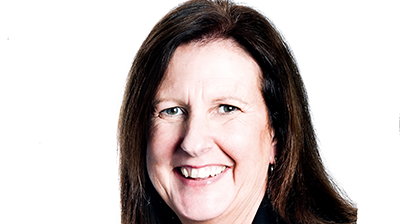
The number of people, businesses and social enterprises borrowing from the UK’s not-for-profit, ‘community development’ lenders has leaped by 22% to nearly 95,000 in 2022.
New figures from Responsible Finance, which represents community development finance institutions (CDFIs), reveal their total lending increased by 20% to £248m in 2022, reaching 94,744 customers who would otherwise have been excluded from affordable finance.
Of this, personal lending by CDFIs increased 33%, to £46m lent to 90,630 people.
The organisations, some of which lend to households and others to businesses and social enterprises:
- Helped households save £28m in interest they would have paid to a high-cost lender, by lending £46m to 90,630 people
- Lent £81m to 3,230 start-ups and established small businesses in 2022, creating 2,570 new businesses and safeguarding and creating 8,120 jobs
- Lent £117m to 416 social enterprises, safeguarding and creating a further 103 jobs
They play a crucial role in helping people avoid loan sharks and high interest lenders, and in providing access to finance for viable businesses and social enterprises unable to access the finance they need from banks and other sources, both to launch and to grow.
Their impact, which has been praised by politicians across political parties, financial inclusion campaigners, SMEs and social enterprises and the organisations which represent them, is revealed in a new report which demonstrates how CDFIs contribute to 10 of the 17 United Nations Sustainable Development Goals. They provide more than just loans, with the report showing:
- CDFIs helped more than 68,000 people, many the ‘working poor’, identify over £336m in benefits they were due but not claiming
- CDFIs provided more than 31,500 hours of pre-and post-investment support to start-ups, SMEs and social enterprises
Theodora Hadjimichael, CEO of Responsible Finance (pictured), said: "CDFIs are driven by impact, so they work very hard to get to know every customer. They go above and beyond to provide bespoke support for applicants and customers, building up their resilience and increasing their chance of success. We are proud that our sector was a stepping stone for more people, social enterprises and businesses than ever before."
Business lending: unlocking opportunity in 2022:
- CDFIs lent £29m to 2,480 start-ups (average loan size: £11,704) and £52m to 754 established SMEs (average loan size: £69,325)
- 99% of the businesses which borrowed from CDFIs in 2022 had previously been declined by another lender
- 94% of businesses supported were based outside London and the south east
- 50% of businesses supported were based in the UK’s 35% most disadvantaged areas
- 36% of CDFI business loans were made to women-led start-ups and businesses (just 16-21% of UK businesses overall are led by women)
- 15% of business loans were made to ethnic minority-led start-ups and businesses (only 6% of UK SMEs are ethnic minority led)
Women-led businesses and businesses led by people from ethnic-minorities are twice as likely to be rejected for finance compared to those led by male and by white business leaders. CDFIs lend disproportionately more to women-led businesses and to businesses led by individuals from Black, Asian and Minority Ethnic backgrounds compared to their representation in the overall business population.
Theodora Hadjimichael, CEO of Responsible Finance, said: "Small businesses faced many challenges in 2022 which affected their financial positions. Inflation, increased costs of doing business, and uncertainty have affected many firms, meaning it is becoming harder to get loans. There was only a 64% success rate for small and medium enterprises (SMEs) applying for finance from mainstream lenders; a sharp year-on-year fall from 80%. The impact of this on the UK’s economic recovery will be long-term without sufficient intervention to grow alternative credit provision.
"Twenty CDFIs lend to small businesses across the regions of the UK. CDFIs are a proven route for getting funding to SMEs where it will have the biggest impact. 99% of the SMEs CDFIs support have already been unable to access finance from other sources, and they concentrate their lending in the most deprived areas of the UK.”
Creating thriving places: CDFI lending to social enterprises in 2022:
- CDFIs and social banks lent £117m to 416 social enterprises (average loan size: £281,576)
- 81% of social enterprises supported were based outside London and the south east
- 45% of social enterprises supported were based in the UK’s 35% most disadvantaged areas
- 45% of CDFI social enterprise loans were made to women-led social enterprises
Theodora Hadjimichael, CEO of Responsible Finance, said: "Eleven CDFIs and social banks fill a market gap through specialising in lending to social enterprises. CDFIs themselves are social enterprises, so have unique insight into how to best serve their finance needs to enable them to flourish. Because of their unique business models whereby they exist primarily for a social or environmental purpose, social enterprises can struggle to access finance from mainstream lenders like banks. Access to grant, loan and non-financial support from CDFIs is crucial for many.”
Responsible Finance's 2023 Impact Report, which is supported by Shawbrook Bank, gives a comprehensive insight into CDFIs’ work and the unique effects of fair, affordable finance, with extensive data in addition to the above.
Warren Mutch, Head of Speciality Finance at Shawbrook Bank, said: "Community Development Finance Institutions are playing an increasingly important role in delivering positive economic, social, and environmental impact. Access to finance on fair terms enables individuals, businesses, and social enterprises to achieve their goals, helping society to benefit from greater inclusion.
"We’re proud to be supporting CDFIs by providing access to the consistent and stable funding they need to deliver for the local communities they serve. Driven by a strong sense of purpose to create opportunity, at Shawbrook we are delighted to support this study and the work of Responsible Finance to quantify the impact of the CDFI sector across the UK.”
The report is available at www.responsiblefinance.org.uk/impactreport.






